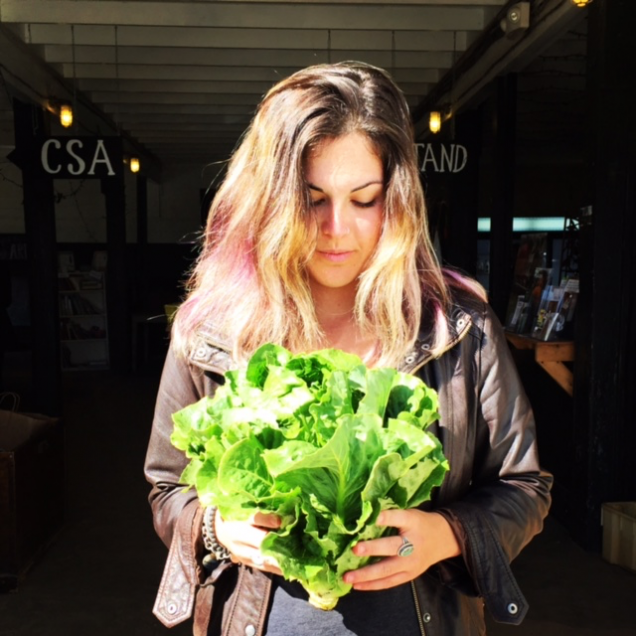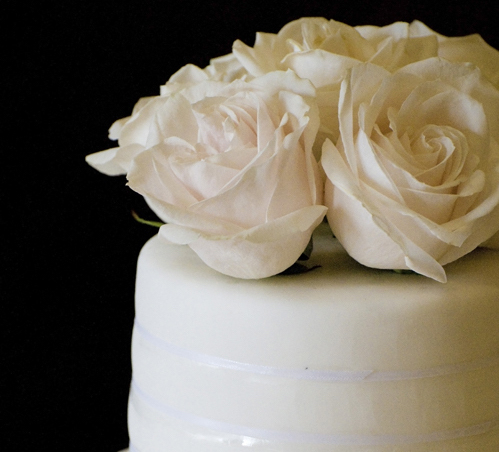Examples of Master’s Thesis
Decoding Alternative Food Communities
by Ariel Knoebel

I stared down at the entangled green tendrils in the dirt, thinking to myself “What is tatsoi, anyway?”
I was embarrassed to ask. Everyone else seemed to know exactly what they were doing as they crouched between the rows of bushy greens, chatting while weeding with expert hands until perfectly straight rows emerged down the field. Eventually, I got over my first-day-of school jitters and spoke up, swallowing my pride for the sake of the soon-to-be-uprooted plants in my hands. From there, I learned not only about the small oval shaped leaves I was weeding around, but all about the farm crew members, where they came from, and what drew them to the hot, dusty, hard work of growing food for the community.
Through my research for my Gastronomy Thesis project, I was able to meet a diverse group of people working to build community through alternative food. I spent six months digging in the dirt on local farms, wandering around backyard gardens, cheers-ing at community dinners, and talking to people about why the way they eat matters. Participation in alternative food communities leads to a shift in time commitment and personal priorities, assigning a new importance to usually invisible domestic labor. Members of these communities connect over the dinner table; it becomes the place where community, moral values, and self-identity converge.
The most exciting part of my research emerged for me through the interviews I conducted with my participants. Nothing is more affirming for a budding scholar in a new field than to hear someone speak with absolute conviction about the importance of your area of study. My day job falls in the fitness realm, so I spend a lot of time explaining to people that I am not actually a dietician, not a nutritionist, but a sort of food social scientist—and that doesn’t usually answer people’s questions completely.
My thesis project allowed me the opportunity to learn how to speak to the aspects of food studies I find vitally important, and to do the rewarding work of contributing new knowledge to the field. I spent many evenings and days off huddled in the corner of a coffee shop trying to decode modern Marxist theory, hoping to find a theoretical home for my thoughts on alternative food economies in the modern world. I often felt like I would never finish, or that if I did I would never write something worth reading, but occasionally I would put an idea on paper and think to myself, “well that’s something worth sharing with the world.” As a researcher and a writer, I think that’s about as much as you can ever hope for. In the end, with a paper finished and bound, a recent acceptance to present at a conference, and a renewed love for the ivory tower, I feel ready to take on whatever comes next.
Wedding Cakes, Congealed Precedent, and that time I wrote a thesis
by Lucy Valena

From my first semester in the gastronomy program, I’d pretty much decided I would write a thesis. As a project-oriented person hoping to do independent academic writing in the future, it seemed like a good challenge that would help me prepare for the next step in my career. Additionally, I was feeling unsure as to whether or not I would apply for a PhD program after finishing my master’s degree, but knowing there was a chance I might want to definitely solidified my choice.
Since the history and symbolic aspects of food are what that I find most fascinating, wedding cake seemed like a natural target for my research. I had also written a paper about wedding cake history for the intro class, so I at least knew something about the previous work that had been done on the topic. Wedding cake has survived for such a long time (at least 300 years), and it shows no sign of going away; my question was, simply, why? The project ended up taking me all over the place: my research included reading historic cookbooks, interviews with producers of fake wedding cakes, and analysis of mainstream television. In order to really address my findings the way I wanted to, I had to cobble together theory from three different thinkers.
In the end, I found that wedding cake has survived because of its flexibility and constant shape-shifting. While its physical form has changed so much over time, the value ascribed to it has remained the same- a mixture of commodity fetishism and ‘tradition’, or what I call ‘congealed precedent’. These factors have allowed the wedding cake to remain fashionable and also symbolically important over the ages.
Writing a thesis was the most intellectually stimulating thing I’ve ever done. It was very difficult, and for the last few months of the year I spent working on it, I had the uncanny feeling that my project was eating me alive. I am a painfully slow writer, and I ended up rewriting the paper at least five times before I finally felt it was done. However, getting through it, seeing the challenge and rising up to meet it, was very empowering and invigorating. Since I got my undergrad degree in studio art, before this I had never written anything more than twenty pages (aside from the failed novel I keep in a drawer in my desk). After this experience, I have confidence and excitement about other research and writing I would like to do independently, a task I now feel I have the tools for. Obtaining those tools was my main reason for going to grad school in the first place, and with that in mind, I feel great about the experience.
In the time I was writing my thesis, I got married. In addition, I sold my business of five years, and subsequently underwent the somewhat dramatic lifestyle change of no longer being self employed. Sometimes, life is like that, and everything shifts all at once. If I could do it all again I may have timed things differently, but there was also something magical and liminal about that intense year. Its almost as if I was transformed into a different person, in a time that was bookended by the beginning and finishing of this project. I’m still not sure if doctoral work is in my future, but if it is, I know that I will be much more prepared for it because I wrote a thesis.
Read more of Lucy’s writing and follow her many baking adventures at her blog, Ink and Lemon.